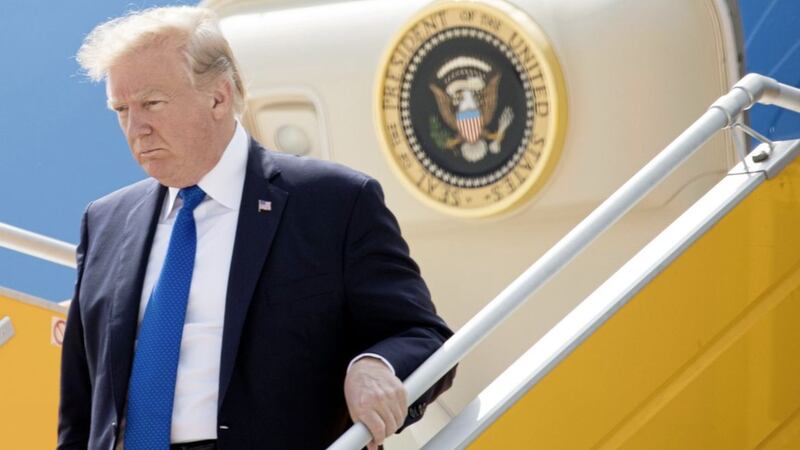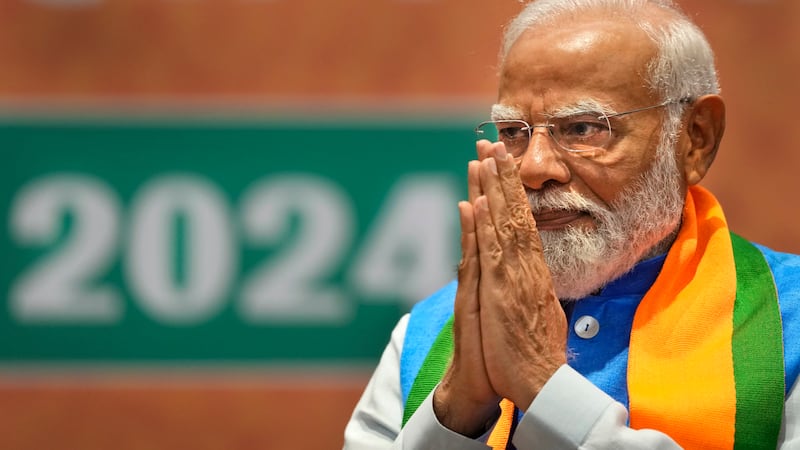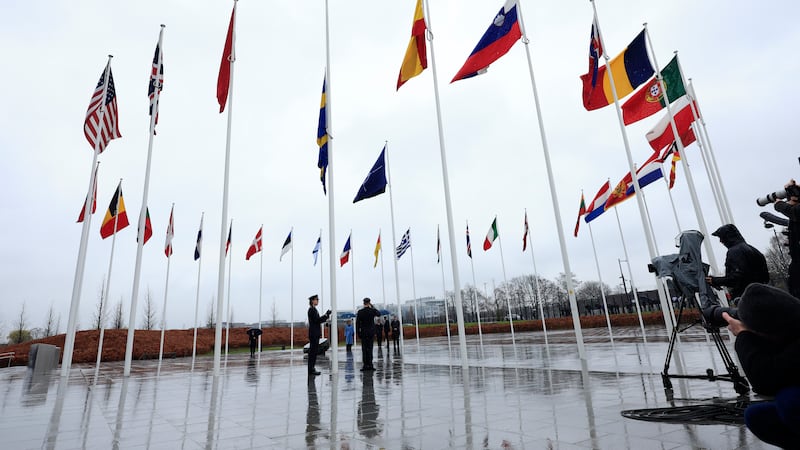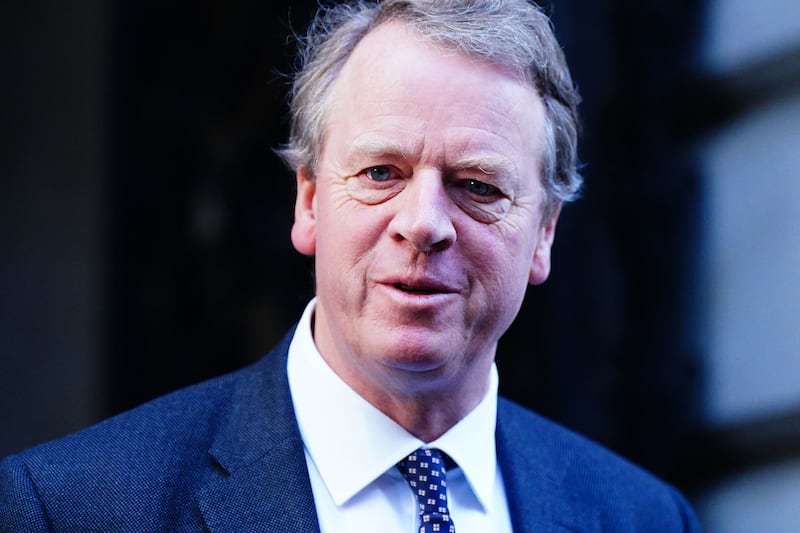US president Donald Trump and his Russian counterpart Vladimir Putin have shaken hands at a summit in Vietnam.
The two leaders were spotted on video greeting one another ahead of an Asia-Pacific Economic Cooperation (Apec) summit gala dinner in the coastal city of Danang.
Mr Trump and Mr Putin were expected to hold a formal meeting on the sidelines of the summit.
However, as Mr Trump was about to land on Friday, the White House announced no meeting would take place.
Press secretary Sarah Huckabee Sanders blamed scheduling conflicts.
US secretary of state Rex Tillerson said earlier this week that the pair would not meet unless they had something substantive to discuss.
Mr Trump is attending a welcome event and gala dinner as part of the summit.
Earlier in the day, Mr Trump used a speech in Vietnam to denounce multilateral agreements embraced by the region, and deliver what appeared to be a rebuke to China, railing against trade practices he says have put Americans out of work.
Promising to put "America first" in his trade practices, he told a gathering of CEOs on the sidelines of the summit: "From this day forward we will compete on a fair and equal basis.
"We are not going to let the United States be taken advantage of any more. I am always going to put America first."
It was a striking change of tone from the day before in China, where Mr Trump had taken a friendlier approach toward the country as he sought to establish a more balanced trade relationship.
In his speech, Mr Trump told executives gathered in the coastal city of Danang that he was happy to enter into bilateral trading agreements with any of the nations in the Indo-Pacific region - but only if they are reciprocal and fair.
The US president said: "What we will no longer do is enter into large agreements that tie our hands, surrender our sovereignty, and make meaningful enforcement practically impossible."
As one of his first acts as president, Mr Trump rejected the far-reaching Pacific Rim trade pact, known as the Trans-Pacific Partnership (TPP), disappointing many nations in the region, including the summit's host, Vietnam.
Mr Trump also took aim at what he described as abusive trade practices he said had "hurt many people in our country".
He described "jobs, factories and industries" being "stripped out of the United States and out of many countries" as a result.
Without singling out China by name, Mr Trump argued the US had adhered to World Trade Organisation principles, only to be taken advantage of by counties that had ignored the rules and engaged in harmful practices such as product dumping, currency manipulation and government subsidising of goods.
"We can no longer tolerate these chronic trade abuses and we will not tolerate them," he said.
In the speech, Mr Trump said he had spoken "openly and directly" with Chinese president Xi Jinping during his visit about "about China's unfair trade practices and the enormous trade deficits they have produced with the United States".
Mr Trump said China's trade surplus, which stood at $223 billion (£169bn) for the first 10 months of the year, was unacceptable, and repeated his language from Thursday when he said he did not blame China or any other country "for taking advantage of the United States on trade".
But Mr Trump went on to say that the US would "no longer turn a blind eye to violations, cheating or economic aggression".
He said: "We will no longer tolerate the audacious theft of intellectual property.
"We will confront the destructive practices of forcing businesses to surrender their technology to the state and forcing them into joint ventures in exchange for market access.
"We will address the massive subsidising of industries through colossal state-owned enterprises that put private competitors out of business, all the time."
All are allegations the US has previously lodged against China.
Mr Xi followed Mr Trump to the microphone, but did not directly respond to the US leader's claims of trade unfairness toward the US.
Mr Trump also continued to talk tough against North Korea and its development of nuclear and ballistic missiles weapons, as he has throughout the trip.
"The future of this region and its beautiful people must not be held hostage to a dictator's twisted fantasies of violent conquest and nuclear blackmail," he said.
Apec is the first of several summits Mr Trump is scheduled to attend on his first official visit to Asia.
It will be a change in pace for the president, who has spent much of the week basking in elaborate welcome ceremonies and banquets between meetings with the leaders of Japan, South Korea and China.








